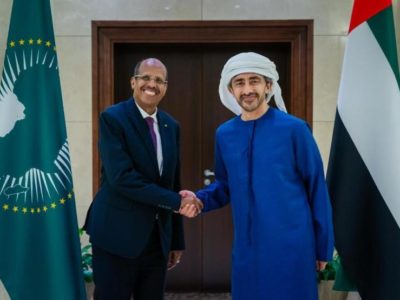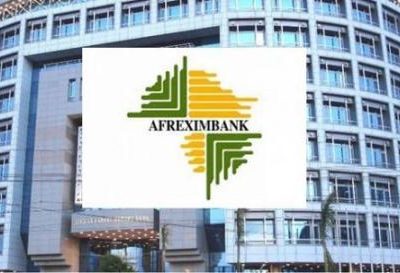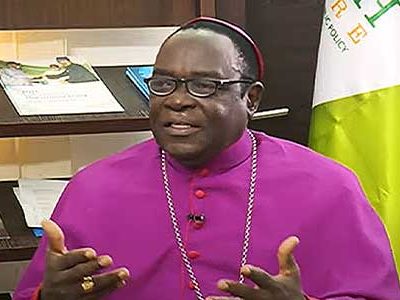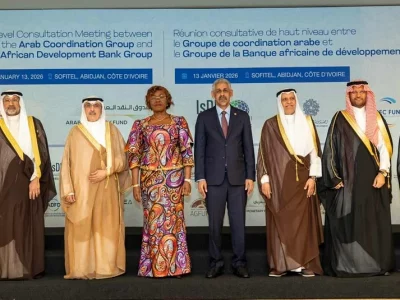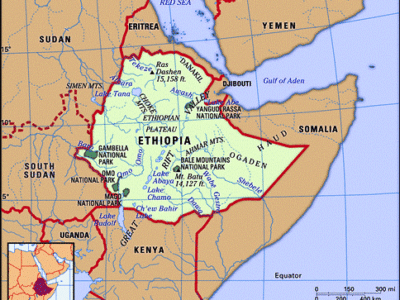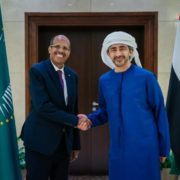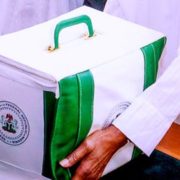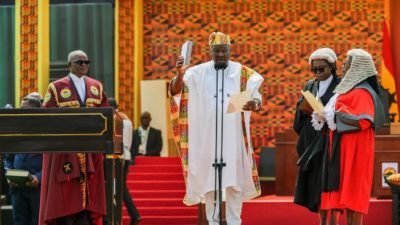| Vice President of Nigeria, Prof. Yemi Osinbajo, has affirmed faith in Nigeria’s progressive march and asked multinationals to take a stake on Africa’s largest economy as it fends off the nostalgias of its recent recession. Osinbajo spoke yesterday at the commissioning of the new Nestle Milo Ready-To-Drink Factory in Agbara, Ogun State, Nigeria. “Our government is also a “ready-to-serve” government, ensuring that we implement the Economic Recovery and Growth Plan (ERGP) to keep the economy on the path of sustainable economic growth and global competitiveness. “One important component of the Plan is the provision of critical infrastructure, such as roads, rail and power, which this administration is fully committed to. We’re fully committed to supporting companies such as Nestle as we spur growth and create jobs within the economy,” Osinbajo told his audience of major players in corporate Nigeria. Read the full address below: It is my very special pleasure to be here today on this occasion of the commissioning of the Nestlé MILO Ready to Drink Factory. I am sure we all agree that Nestlé MILO holds a special place in the heart of every Nigerian – since as children, we all aspired to be future champions. Indeed, Nestlé’s commitment to doing business in Nigeria has been unwavering over the past 57 years, since the company’s establishment in Nigeria in 1961. This is truly worth commending – particularly when you consider the socio-economic benefits achieved for Nigeria by the location of its factories in rural areas and sourcing its raw materials from local farmers. I recall inaugurating the Abaji water factory in May 2016 and, today, the Ready-to-Drink Factory is another testimonial of the company’s commitment and success in Nigeria. I am told that this factory was built at a cost of N4.1 billion, and it will create 150 direct jobs in addition to local sourcing of raw materials from Nestle’s network of over 30,000 farmers. Drawing an analogy from that, I must say that our own government is also a “ready-to-serve” government, ensuring that we implement the Economic Recovery and Growth Plan (ERGP) to keep the economy on the path of sustainable economic growth and global competitiveness. One important component of the Plan is the provision of critical infrastructure, such as roads, rail and power, which this administration is fully committed to. We’re fully committed to supporting companies such as Nestle as we spur growth and create jobs within the economy. Another is the creation of an enabling business environment, and making Nigeria a progressively easier place to do business. To actualize this goal, in July 2016, Mr. President inaugurated the Presidential Enabling Business Environment Council (PEBEC), which he asked me to Chair, and he gave us the task of implementing this mandate. The business climate reforms undertaken under PEBEC have already begun to bear some fruit and reflects that Nigeria is committed to creating an enabling environment to facilitate private sector-led growth and development. Many, of course, will recall that in October, 2017, the World Bank released its flagship “Doing Business” report for 2018. In that report, Nigeria moved up by an unprecedented 24 places, and for the first time the country was also recognized as one of the top 10 most improved economies in the world. This result shows the power of collaboration across various levels of government, especially in the reform areas such as getting credit, where we are now ranked 6th out of 190 countries due to our enhanced legal framework, with the potential to unlock credit to small and medium-scale enterprises by giving added comfort to lenders. Last week, PEBEC announced a National Action Plan (NAP 3.0), which commenced on February 5 and will run until April 5, 2018. This accelerated intervention programme will focus on implementing some of the most relevant ease of doing business reforms that have ever come within our radar within the next two months. For example, we are working with NAFDAC, SON, the Nigeria Customs Service, as well as the Nigeria Police Force, amongst others, to ease the burden of product registrations, quality standards regulation, as well as the movement of goods and services across the country. Since July 2017, the Council also began collaborating with State Governments to implement ease of doing business initiatives that will make States increasingly attractive investment hubs. This year, we are working on a number of key reform initiatives, including the deployment of a National Trading Platform comprising a Single Window Platform, deployment of scanners, and a Ports Community system, that will together promote transparency and efficiency at our ports. Our implementation efforts will be underpinned by ensuring compliance with Executive Order 001 and on efficiency and transparency in government, as well as our web-based reporting application for validation and objective feedback from the public. Furthermore, we are, once again, collaborating with the National Assembly and supporting the passage of their priority business climate reform bills, while partnering to deliver an Omnibus Bill, which will address various irritants within extant laws that need to be amended for the purpose of achieving a better environment for doing business in Nigeria. Last Monday, February 5th, Mr. President signed Executive Order 005, a decisive step in the promotion of indigenous businesses, talent and professionals, especially in Science, Engineering and Technology. The order mandates all procuring authorities to give priority to Nigerian companies and firms in the award of contracts. The Order also directs all MDAs to engage Nigerian professionals in the planning, design and execution of National Security projects. The order also specifically prohibits the Minister of Interior from granting work permits to foreign workers whose skills are already available in Nigeria. Where expertise is lacking, procuring entities are required to give preference to foreign companies and firms with a demonstrable and verifiable plan for indigenous development, prior to the award of such contracts. From a broader perspective, two days ago, we launched what we call the Policy Laboratories, this is an intervention to accelerate the implementation of our Economic Recovery and Growth Plan (ERGP). The Laboratories will bring together all private and public sector stakeholders necessary to achieve the specific policy or project objectives of our economic plan. In the first instance, we are focusing on three specific areas; agriculture and transport, power and gas supply, and manufacturing and processing. The goal of these labs is to generate $24 billion worth of investment, 80% of which we expect will come from certain private sector participants, with 15 million jobs, projecting about 3.5% GDP growth this year, and 7% by 2020. As a long time active player in our market, we look forward to continued collaboration with Nestle in achieving our objectives of economic growth and job creation. So, on this note, I would like to congratulate the Chairman of Nestle Nigeria – Engr. David Ifezulike; the Managing Director – Mr. Mauricio Alarcon, as well as other members of the Board and management of Nestle Nigeria, and, of course, all of the workers of this great company, on the inauguration of the new Ready-to-Drink factory. I believe it is a significant step, not just for Nestle, but also for Ogun State and Nigeria as a whole. I, therefore, urge other multinationals to take a cue from Nestle, and bet on Nigeria’s future and domicile their manufacturing bases right here in this country, because this country is, clearly by far and away, the best investment destination in Africa. Once again, let me congratulate you all and thank you very much for your attention. |


